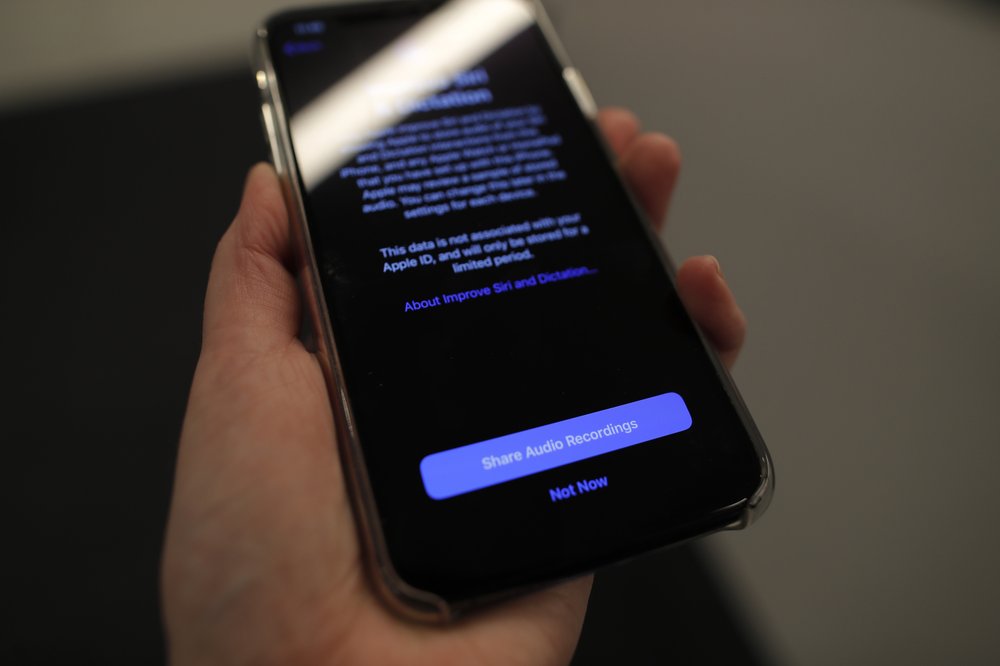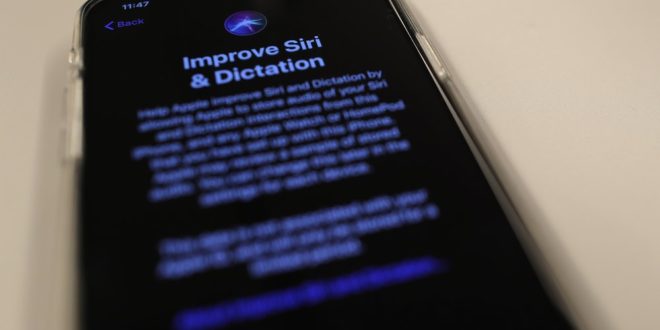By Crystal King
Apple is resuming the practice of using humans to review audio recordings from users who agree to save and share their audio with the new iPhone iOS 13.2 software update.
The announcement in late October comes shortly after the company’s decision in August to suspend the practice due to concerns over privacy because of the use of human reviewers over machines. The concerns were initially raised in July this year when human contractors for the company came forward stating they regularly heard confidential information such as drug deals or medical information while reviewing audio.
Apple apologized for it’s practice of human reviewers, and CEO Tim Cook reiterated that the company strives to be a trusted steward in privacy and understands privacy to be a basic human right for everyone.
With Apple changing back to this controversial way of reviewing audio, the company is giving its users more notice and control over how their audio is used. When installing the new iOS 13.2 update, users should receive an option to select “Not Now” if they wish to decline having their audio stored for review. This decision can also be changed later under settings.

However, some users do not recall having this option when updating their software. UTC sophomore Jake Backer recently upgraded to a new iPhone and isn’t aware if he agreed to share his audio recordings or not.
“I recently upgrade to the iPhone 11, but do not recall receiving the option to opt out when setting my new phone up,” Jake says.
Users can often rush through upgrades and technology agreements while not reading the fine print of what they are agreeing to. This means Apple’s agreement may not be very effective in making users aware of what their audio recordings are being used for. In other cases, users may believe that they have to agree or their device may not work properly like UTC senior Laura Dolejs who shared a similar belief.
“I probably thought that if I didn’t share my audio recordings then the device just wouldn’t work.” Laura says.
Apple is not the only company with a practice of reviewing consumer’s audio. Google recently began the practice of contracting human reviewers to listen and transcribe voice commands that users give to its artificial intelligence system named Assistant. Amazon also practices reviewing commands for its digital assistant Alexa in order to improve services to its users.
Apple’s human review of audio is also for improving its digital assistant Siri, but the use of human review is still quite troubling to privacy experts. The main concern among experts is the possibility of an employee leaking details of what they hear in private conversations. However for Laura Dolejs, she feels that such practices should be expected.
“I guess I feel that if you choose to record audio on a device that is connected to the internet or is utilized by someone else, like a phone company, then you have relinquished some of your rights to privacy by giving them access to your recorded data,” Laura says.
Some users feel the practice of reviewing audio is an invasion of privacy regardless if a machine or a person is reviewing the audio. UTC freshman Autumn Wilson is quite bothered by the practice.
Autumn says, “I feel the same no matter who is reviewing the audio. It is not theirs to review and process.”
Apple plans to resume human review sometime this fall, but an exact date has not been announced. The company did however state that going forward the audio would be reviewed by Apple employees and not contractors.
 Mocs News Reporting the news that matters most to UTC
Mocs News Reporting the news that matters most to UTC


